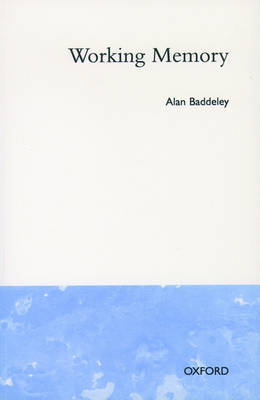Oxford Psychology
1 primary work
Book 11
Working memory refers to the temporary storage of information necessary to perform such tasks as learning, reasoning, and comprehension. In this book, based on 10 years of research at the MRC Unit at Cambridge, Dr. Baddeley proposes a specific model of working memory involving a central executive controller and a number of 'slave' systems. He explores two of these hypothetical slave systems: the Articulatory Loop, a system that actively stores verbal material, and the Visuo-Spatial Sketchpad which is capable of storing and manipulating images. The two systems are justified in terms of experimental results both from normal subjects and from brain-damaged patients. The concept of working memory is also applied to the study of reading, with chapters on fluent adult reading and on the development of the skill of reading in children. One section concentrates on the Central Executive component of working memory, relating it to models of attention, and using it to account for the cognitive deficits observed in patients suffering from frontal lobe damage and in both normal and dementing old people. Dr.
Baddeley promotes the concept of working memory as a replacement for the older short-term memory, considering the unitary system and experimental results which led to its abandonment as a concept.
Baddeley promotes the concept of working memory as a replacement for the older short-term memory, considering the unitary system and experimental results which led to its abandonment as a concept.
